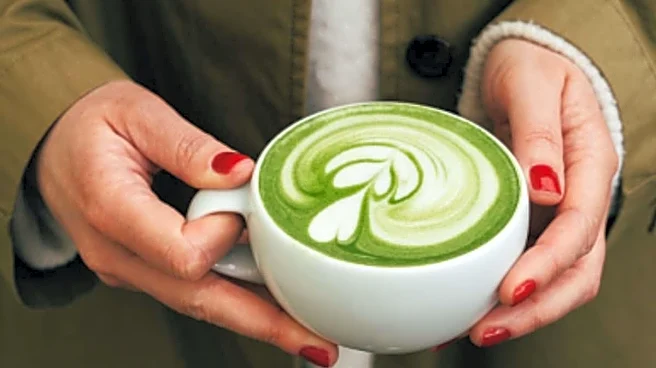Matcha, a finely ground tea powder known for its health benefits and vivid green colour, has become increasingly popular among wellness enthusiasts. Rich in natural chemicals, amino acids, and antioxidants,
this colourful green beverage has several health advantages over regular tea or coffee. But how does its caffeine content compare to that of coffee? Maryland-based anaesthesiologist and pain relief expert Dr Kunal Sood has provided information on matcha’s caffeine content, health benefits, and possible drawbacks.
Consistent energy and improved concentration are two of matcha’s significant benefits. In contrast to coffee, which occasionally causes jitters and unexpected energy spikes, matcha promotes a relaxed yet alert mood. This is mostly because of its high content of L-theanine, an amino acid that helps people relax without feeling sleepy, so they can think clearly and have long-lasting energy.
The amount of caffeine in a serving varies depending on how it is prepared, but matcha has more caffeine per serving than both ordinary green tea and coffee beans. According to Dr Sood, an 8-ounce cup of coffee usually contains approximately 96 milligrams of caffeine, whereas a “standard two-ounce serving of matcha contains 38 to 88 milligrams.”
Consequently, matcha’s higher concentration per gram means that, depending on preparation, it may provide an equivalent or even higher caffeine dose than coffee, even if coffee may have more caffeine per serving.
“If you did drink the same amount as a full cup of coffee, matcha could actually have more caffeine depending on how it’s prepared,” Dr Sood said in his recent Instagram post.
View this post on Instagram
In addition to its caffeine concentration, matcha has a number of health advantages. Packed with natural compounds, amino acids, and antioxidants, it can improve focus, promote heart health, and provide you with a consistent energy boost without the jitters that come with coffee. Matcha provides a softer, longer-lasting sort of alertness than coffee, which frequently causes a sudden energy spike and collapse.
However, there are some possible hazards associated with it. It includes substances called tannins that might hinder the body’s absorption of iron. To reduce this effect, Dr Sood suggests waiting at least an hour after eating meals high in iron before consuming matcha.
“Drinking matcha right after an iron-rich meal may lower iron absorption, so it’s best to wait at least an hour before having it,” he said.
In summary, the amount of caffeine in matcha varies depending on the size of the serving and how it is prepared, even though it may have more caffeine per gram than coffee. Although it has several health advantages, such as improved concentration and long-lasting energy, it should be used carefully, particularly in regards to iron absorption. Moderation and understanding of personal health demands are crucial, just like with any nutritional choice.




/images/ppid_59c68470-image-177102753183257032.webp)


/images/ppid_a911dc6a-image-17710264327998831.webp)

/images/ppid_a911dc6a-image-177102646607765106.webp)




